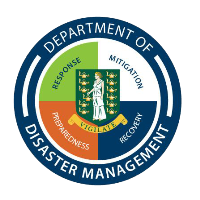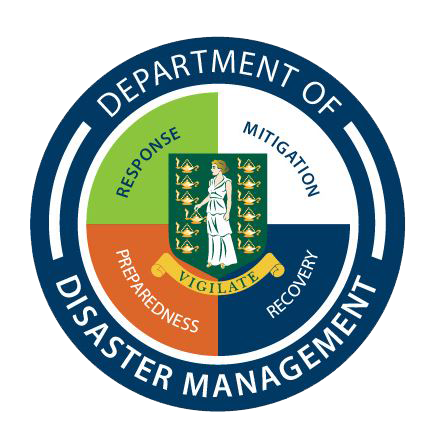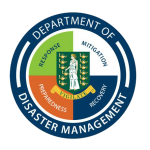Caption: Health officials and
disaster managers gathered at the Department of Disaster Management Tuesday for
a meeting of the Health, Welfare and Social Services Committee of
the National Disaster Management Council (NDMC).
Health
officials and disaster managers in the British Virgin Islands are taking
proactive measures to prevent the introduction of the Ebola Virus Disease to
the Territory.
A meeting Tuesday
of the Health, Welfare and Social Services Committee of the National Disaster
Management Council (NDMC) discussed ways to curb the potential introduction of
Ebola as part of overall efforts to enhance health disaster management in the
Territory. Concern about the possible spread of Ebola in the Caribbean comes
against the backdrop of an upsurge in cases of the disease in some African
countries.
Health Disaster
Coordinator, Dr. Ronald Georges said the BVI must take all precautionary
measures to ensure that Ebola is not introduced into the Territory. “The
Caribbean Public Health Agency (CARPHA) has indicated that the risk of the
disease being introduced to the Caribbean is low, but at the same time,
encouraged regional territories to be prepared. This is precisely what the BVI
is trying to do; we want to take pro-active measures that will avert any
potential crisis with Ebola transmission,” he said.
Following Tuesday’s
meeting health officials and disaster managers now have a mandate to formulate
draft protocols for the management of Ebola, should the virus be introduced to
the BVI. These protocols will be reviewed at a follow-up meeting scheduled for
September 25. “We have been closely monitoring the recommendations and guidance
from the World Health Organisation and the actions we take locally will be so
guided,” the Health Disaster Coordinator stated.
“Going forward, we will review the stock levels
of Personal Protection Equipment (PPE), and procure more if necessary; train
and re-train frontline personnel in the use of the PPEs; design protocols for
the containment and transportation of infected persons and/or samples and determine
procedures for clinical management of the disease, focusing specifically on the
identification and handling of suspected infected persons right through to
containment,” Dr. Georges elaborated.
The Ebola
Virus is cause for concern especially in a region heavily dependent on tourism
and where there is continuous movement of people from many parts of the world. Port
health officers have already been assigned to major air and sea ports in the
BVI to conduct screenings and the existing controls will be further
strengthened to deal with the Ebola threat. Health officials will work
collaboratively with border protection agencies to strengthen procedures for
dealing with sick passengers at ports.
Another
proactive measure to be taken by the committee is the identification of an isolation
location. Chief Executive Officer of the BVI Health Services Authority, Mrs.
Darlene Carty-Baptiste confirmed that an area at Peebles Hospital has been
identified for use as an isolation room. Efforts will also be made to explore
the possibility of offsite isolation facilities.
With regard to
public education, the Department of Disaster Management will work closely with
the Environment Health Unit and the Health Disaster Coordinator to educate the
public about the potential threat, identification of the disease and ways to reduce
the likelihood of its introduction to the BVI.
The
Centres for Disease Control and Prevention in the United States revealed
Tuesday that the Ebola outbreak in West Africa is much worse than official
figures show. The World Health Organisation has indicated that more than 3,000
people have been infected by Ebola in Liberia, Guinea, Sierra Leone and Nigeria
since the outbreak began in December and at least 1,552 have died.
The Ebola
Virus Disease is transmitted from wild animals to humans and is spread through direct contact
with bodily fluids and the organs of
those who are already infected or who have died
from the disease. The viral disease is often characterised by the sudden
onset of fever, intense weakness, muscle pain, headache and sore throat.





